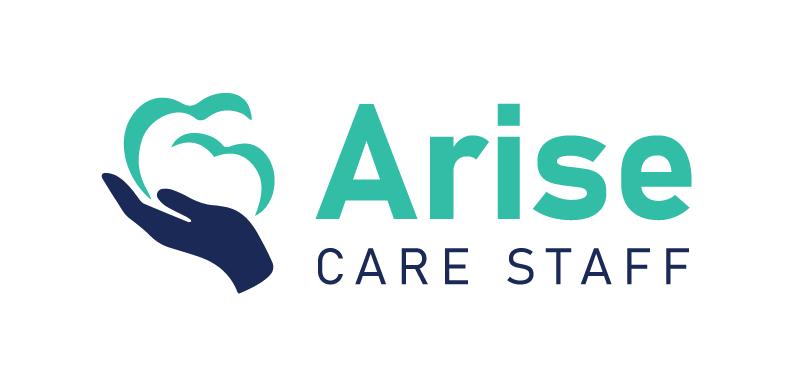Blogs

In Australia’s increasingly multicultural society, aged care providers are facing growing pressure to deliver care that respects the cultural, linguistic, and social needs of their residents. As the elderly population continues to diversify, particularly within Culturally and Linguistically Diverse (CALD) communities, the demand for culturally safe and inclusive aged care has never been greater. Arise Care Staff is at the forefront of providing multicultural aged care staffing solutions , ensuring that facilities can meet these demands while enhancing the overall quality of life for their residents. 1. The Importance of Culturally Safe Aged Care Australia’s demographic shifts mean that aged care facilities are increasingly serving residents from a variety of cultural backgrounds. According to the Australian Bureau of Statistics (ABS), nearly one-third of Australia’s population is born overseas, and many of these individuals are reaching retirement age. This demographic includes people from diverse ethnic backgrounds, including Māori, Pacific Islanders, Chinese, Indian, Italian, Greek , and Indigenous Australians, among many others. For elderly individuals, their culture and language are integral to their identity. Aged care services that understand, respect, and incorporate cultural practices and beliefs can greatly improve the emotional and physical well-being of residents. Culturally safe aged care means providing an environment where residents feel comfortable, respected, and valued—free from discrimination or cultural insensitivity. For aged care workers, this means having the cultural competence to understand and accommodate the unique needs of each resident. It requires not just knowledge of traditions and practices, but also the ability to engage with residents in a way that fosters trust and promotes dignity. Arise Care Staff is committed to providing facilities with culturally safe staffing solutions by recruiting multilingual staff who can communicate with and connect deeply with residents from diverse backgrounds. 2. Why Multilingual Staff Are Essential in Aged Care Language plays a central role in building strong relationships between caregivers and residents. A common barrier in aged care is the language gap , which can lead to misunderstandings, frustration, and a decline in care quality. Multilingual staff are crucial in overcoming this barrier, as they can communicate directly with residents in their preferred language, ensuring that their needs are understood and met. By employing multilingual nursing staff , Arise Care Staff is helping to break down these communication barriers and improve resident outcomes. Multilingual care providers offer: Better Communication: Staff who speak the same language as the resident can understand their needs more effectively, both for everyday care tasks and for addressing complex health concerns. This enhances the quality of care provided, as language is key to understanding symptoms, preferences, and personal concerns. Emotional Connection: Language is not just about exchanging information; it is a means of emotional expression. Residents who speak their native language often experience less anxiety and distress, leading to better emotional well-being. For elderly individuals who may feel isolated or disconnected from their cultural roots, having caregivers who speak their language creates a sense of familiarity and security. Cultural Sensitivity: Multilingual staff are also often more attuned to the cultural nuances that can influence care. This might include dietary preferences, spiritual practices, or traditional healing methods that are important to the resident's background. Multilingual staff can navigate these customs with respect, enhancing the comfort and dignity of the residents. 3. Addressing the CALD Community’s Unique Needs The elderly population in CALD communities often faces additional challenges compared to the general population. Many older migrants, especially those who do not speak English fluently, experience social isolation, loneliness, and difficulty accessing essential services. In aged care, this isolation can be compounded by language barriers that hinder residents’ ability to advocate for their own care. To address these challenges, Arise Care Staff ensures that aged care facilities can access staff with multilingual skills who are sensitive to the particular needs of CALD residents. This commitment includes: Culturally Appropriate Care: Understanding cultural values and practices is vital to offering respectful, personalised care. For example, some cultures may have different attitudes toward aging or specific preferences regarding end-of-life care. Multilingual staff, with their awareness of these differences, are better equipped to provide care that aligns with these values. Reducing Social Isolation: Many residents from CALD backgrounds may have limited social connections outside their family, particularly if their family members live abroad or are unable to visit regularly. Having multilingual staff means that these residents can engage in meaningful conversations, maintain a connection to their culture, and experience a sense of community in their care environment. Better Health Outcomes: There is significant evidence linking cultural competence in healthcare with improved patient outcomes. By providing residents with caregivers who understand their cultural background, Arise Care Staff helps to improve the quality of care and patient satisfaction. Furthermore, culturally competent care can lead to better adherence to treatment plans and a more positive overall care experience. 4. Arise Care Staff’s Approach to Inclusive Hiring At Arise Care Staff , we recognise the importance of ensuring that aged care facilities have access to the best talent available. Our recruitment processes are designed to source not only highly skilled care staff but also professionals who are passionate about delivering culturally safe care. We pride ourselves on our ability to find multilingual workers who bring not only clinical expertise but also an understanding of the cultural diversity of Australia’s ageing population. Our inclusive hiring practices ensure that facilities have access to care workers who can speak multiple languages, including but not limited to Mandarin, Italian, Greek, Punjabi, Hindi, Arabic , and Vietnamese . This diversity in our workforce enables us to meet the varied needs of elderly residents across different backgrounds, ensuring that all residents receive the high-quality, personalised care they deserve. 5. Conclusion: The Future of Culturally Safe Aged Care As Australia’s population continues to age and diversify, the demand for culturally safe, inclusive care will only grow. Multilingual staff are a crucial part of this evolution, helping to bridge language and cultural gaps, build trust with residents, and improve overall care outcomes. Arise Care Staff remains committed to leading the charge in delivering culturally competent staffing solutions, ensuring that aged care providers across Victoria and beyond can offer the best possible care to all residents, regardless of their cultural background. By prioritising the recruitment of multilingual, culturally competent professionals, we are not only meeting the current needs of aged care residents but also preparing for a future where diverse, inclusive, and empathetic care is the standard.

As the aged care sector in Australia continues to grow and evolve, so do the expectations placed on the professionals who serve it. With technological advancements, changes in care models, and an increasingly diverse ageing population, the skill set required for aged care workers is expanding rapidly. By 2025, aged care professionals will need to adapt to a variety of new challenges, from digital literacy to trauma-informed care practices. At Arise Care Staff , we recognise the importance of preparing our staff for these changes. In this blog, we’ll explore the skills that will define the future of aged care work and how we’re proactively preparing our workforce to meet the demands of 2025 and beyond. 1. Tech Literacy: Embracing Digital Solutions in Aged Care The integration of technology into aged care is no longer a far-off possibility; it’s a present-day reality. From smart rostering tools to telehealth consultations and wearable health technology , tech advancements are becoming integral to aged care operations. For aged care workers, this means that digital literacy is no longer optional. The ability to navigate new technologies for patient monitoring, data entry, and care coordination is essential. By 2025, aged care professionals will be expected to: Use electronic health records (EHR) systems to document and access patient data. Engage with telehealth technologies to monitor residents remotely or consult with specialists. Understand and operate health monitoring devices like smartwatches that track vital signs, medication adherence, and more. At Arise Care Staff , we’re committed to offering ongoing training to ensure that our workers are not only comfortable with these tools but are skilled in their application. We believe that by empowering our team members with the necessary digital skills, we’re not only enhancing their career prospects but also improving the quality of care provided to residents. 2. Trauma-Informed Care: Understanding and Addressing Emotional Needs As the aged care sector shifts towards a more person-centred approach , understanding the emotional and psychological needs of residents is increasingly important. Trauma-informed care focuses on the impact that past traumatic experiences — such as abuse, neglect, or loss — can have on an individual’s well-being. Workers trained in trauma-informed care can recognise and respond to the emotional and psychological needs of residents, ensuring that they feel safe, respected, and empowered. By 2025, aged care workers will be expected to: Recognise signs of trauma in elderly residents, particularly those with complex health conditions or cognitive impairments. Apply trauma-sensitive practices, including fostering a safe environment, providing emotional support, and responding empathetically to distress. Engage in regular professional development to stay up to date on the latest trauma-informed care techniques. At Arise Care Staff , we understand the importance of trauma-informed care and are actively ensuring our workers are trained in these approaches. Through workshops, online training, and regular seminars, we prepare our team to approach residents with the empathy and understanding they deserve, contributing to a positive care environment. 3. Cultural Competence: Acknowledging the Diversity of Australia’s Ageing Population Australia’s population is becoming increasingly diverse, and the aged care workforce must reflect and adapt to this diversity. With a wide variety of cultural backgrounds, including large migrant and Indigenous communities, understanding and respecting cultural differences will be essential for providing quality care in the years to come. Cultural competence allows aged care workers to understand the customs, values, and communication styles of different cultural groups, which is essential in building trust and offering sensitive care. By 2025, aged care workers will need to: Communicate effectively with residents from a range of cultural backgrounds, recognising the importance of language, traditions, and beliefs in care delivery. Be trained in culturally safe practices, particularly when it comes to dietary restrictions, spiritual practices, and end-of-life rituals. Foster an inclusive and respectful environment for all residents, promoting cultural awareness among colleagues and other care staff. At Arise Care Staff , we are committed to providing cultural competence training as part of our ongoing professional development offerings. By equipping our team with the skills and knowledge to engage with diverse populations, we’re ensuring that our workers can offer care that is respectful, sensitive, and personalised. 4. Critical Thinking and Decision-Making: A Complex Care Landscape As aged care becomes more complex, workers will need to rely on strong critical thinking and decision-making skills . The ability to make quick, informed decisions based on evolving patient conditions, diverse care needs, and sometimes conflicting priorities will be essential. Workers will need to assess situations, analyse the available information, and choose the best course of action to ensure residents’ health and well-being. By 2025, aged care workers will be expected to: Make informed decisions about patient care, particularly in high-pressure or emergency situations. Work collaboratively with multidisciplinary teams to develop and implement care plans. Use evidence-based practices and critical thinking to address health challenges and improve care outcomes. At Arise Care Staff , we foster a culture of critical thinking by providing opportunities for problem-solving and encouraging workers to engage in reflective practice. This helps our staff to not only respond effectively in complex situations but also make decisions that are in the best interests of the residents they care for. Conclusion: Preparing for the Future of Aged Care As the aged care sector continues to evolve, the need for skilled, adaptable, and compassionate workers will only increase. By focusing on tech literacy , trauma-informed care , cultural competence , and critical thinking , we are preparing our staff to meet the challenges of the future head-on. At Arise Care Staff , we’re committed to investing in our team and ensuring that they are equipped with the skills necessary to provide the highest level of care in 2025 and beyond. By aligning our recruitment strategies and training programs with these emerging trends, we’re not only shaping the future of aged care staffing — we’re actively improving the lives of residents across Melbourne, Victoria, and beyond.

In the evolving industry of aged care in Australia, one quality is gaining ground as essential: emotional intelligence. While clinical qualifications and hands-on experience remain vital, the ability to connect with residents on an emotional and human level is proving equally significant. At Arise Care Staff, we understand that delivering exceptional aged care isn’t just about administering medications or assisting with daily tasks — it’s about creating a compassionate environment where empathy and respect are embedded in every interaction. Why Emotional Intelligence Is Reshaping Aged Care Emotional intelligence (EI) refers to the ability to understand, manage, and respond to one’s own emotions and those of others. In aged care settings, this skill translates into compassionate communication, patience during difficult moments, and the sensitivity to navigate complex emotions — from fear and frustration to loneliness and grief. As Australia’s aged care sector grapples with growing demand and increasingly complex care needs, the role of empathy in nursing and personal care work is more critical than ever. Residents, especially those experiencing cognitive decline or mobility challenges, benefit enormously from care workers who can perceive their emotional state and respond appropriately. The Role of Empathy in Improving Care Outcomes Empathy isn’t just a nice-to-have; it’s a crucial component of quality care. Numerous studies have shown that care providers who demonstrate high levels of emotional intelligence foster stronger trust with residents, improve communication, and even reduce the likelihood of adverse outcomes. In emotionally charged environments — such as palliative care or dementia units — this skill set can dramatically improve the quality of life for residents. At Arise Care Staff, we see the impact of emotionally intelligent professionals every day. From calming an anxious resident during a new facility transition to recognising non-verbal cues in a non-communicative patient, our team members demonstrate that empathy and attentiveness are just as vital as medical know-how. Why Soft Skills Are Becoming as Valuable as Clinical Ones While technical training ensures that healthcare staff meet compliance and safety standards, soft skills in healthcare — including active listening, compassion, cultural sensitivity, and emotional regulation — are often the difference between basic care and exceptional care. In today’s aged care environment, soft skills are no longer optional. Regulatory bodies and facility managers increasingly look for candidates who combine clinical knowledge with personal warmth, adaptability, and ethical decision-making. Arise Care Staff aligns with this shift by placing emotionally intelligent professionals in roles where they can make a lasting difference. How Arise Care Staff Prioritises Empathy-Led Recruitment Our recruitment process is designed to identify healthcare workers who not only meet professional standards but also exemplify the values of dignity, respect, and kindness. Whether we’re placing registered nurses, enrolled nurses, personal care assistants, or support workers, we assess soft skills alongside certifications and experience. We conduct thorough interviews that focus on real-life situational responses, gauging a candidate’s ability to manage emotionally complex situations with grace and compassion. We also provide regular training to enhance emotional intelligence, communication techniques, and trauma-informed care practices, ensuring our staff are continually growing. Supporting a More Compassionate Future in Aged Care Arise Care Staff is proud to support healthcare facilities and aged care homes across Melbourne and Victoria with staff who embody empathy-led care. We work closely with our clients to understand their values, team dynamics, and resident demographics, ensuring every placement is a good cultural and emotional fit. By investing in emotionally intelligent healthcare professionals, we’re not only meeting current care standards — we’re actively raising the bar. Our belief is simple: aged care is about people first . When empathy and emotional intelligence are prioritised, residents feel heard, respected, and safe — and that’s the foundation of dignified ageing. Final Thoughts The future of aged care lies in human connection. As the demand for aged care services continues to grow, so does the need for staff who can do more than treat symptoms — they must care with heart. At Arise Care Staff, we’re proud to be part of this shift, recruiting professionals who understand that emotional intelligence in aged care is not just important — it’s essential.

Aged care is more than just meeting the medical and physical needs of elderly individuals—it’s about treating them with dignity, respect, and compassion. Person-centred care is an approach that focuses on the individual, considering their unique needs, preferences, and values in the care they receive. As Australia’s aged care sector evolves, adopting a person-centred approach is becoming increasingly important in ensuring the well-being and happiness of older adults. In this blog, we’ll explore what person-centred care is, why it matters, and how aged care providers can implement it effectively to improve the quality of life for elderly individuals. What is person-centred care? Person-centred care is an approach that recognises the individuality of each resident or patient. Rather than applying a one-size-fits-all method, this model ensures that care is tailored to meet the specific needs, preferences, and life experiences of each individual. Key principles of person-centred care include: Respecting individuality – Recognising that every person has a unique background, values, and preferences. Encouraging independence – Supporting elderly individuals in making choices about their daily lives and care plans. Building relationships – Creating meaningful connections between caregivers, residents, and families. Providing holistic support – Addressing physical, emotional, social, and spiritual well-being, not just medical needs. Why person-centred care matters in aged care A person-centred approach brings numerous benefits to both aged care recipients and care providers, including: 1. Enhanced quality of life By focusing on the individual's preferences, interests, and needs, person-centred care helps elderly individuals maintain their dignity and enjoy a better quality of life. Simple actions, such as allowing them to choose their daily routines, meals, and activities, can significantly enhance their happiness. 2. Improved mental and emotional well-being Elderly individuals who feel heard and valued are less likely to experience depression, anxiety, or social isolation. Person-centred care fosters emotional well-being by encouraging social engagement, meaningful relationships, and participation in activities that bring joy and fulfilment. 3. Better health outcomes When aged care providers focus on the whole person rather than just their medical conditions, they can develop more effective care plans that lead to improved physical and mental health outcomes. Residents receiving person-centred care often experience fewer hospitalisations and better management of chronic conditions. 4. Stronger relationships between caregivers and residents Person-centred care encourages trust and rapport between caregivers and those they support. When caregivers take the time to understand an individual's history, values, and preferences, it creates a more positive care environment and leads to stronger bonds. 5. Greater job satisfaction for caregivers When aged care staff are empowered to deliver care that aligns with an individual’s preferences, they find more meaning and fulfilment in their roles. This can lead to lower staff turnover, improved morale, and better overall care quality. How to implement person-centred care in aged care facilities Aged care providers can take several steps to integrate person-centred care into their services: 1. Understanding the individual Caregivers should take the time to learn about each resident’s history, hobbies, preferences, and values. This can be achieved through: Conducting one-on-one interviews upon admission Encouraging families to share personal stories and insights Documenting preferences in care plans and regularly updating them 2. Empowering choice and independence Encouraging elderly individuals to make their own choices is a key aspect of person-centred care. Aged care providers can: Allow residents to choose their daily activities and routines Offer different meal options that align with dietary preferences Involve residents in decisions about their care and treatment plans 3. Creating a comfortable and engaging environment Aged care facilities should feel like home, not just a medical institution. This can be achieved by: Designing living spaces that reflect residents’ personal tastes Providing opportunities for social engagement through group activities and outings Ensuring access to outdoor spaces and nature for relaxation and enjoyment 4. Training and supporting caregivers Staff play a crucial role in delivering person-centred care, so it’s essential to invest in their training and well-being. Providers can: Offer workshops on empathy, active listening, and personalised care Encourage staff to take the time to engage with residents beyond just meeting their physical needs Provide mental health support for caregivers to prevent burnout and improve job satisfaction 5. Encouraging family and community involvement Person-centred care extends beyond the individual and involves their family and community. Aged care providers can: Facilitate regular family meetings to keep loved ones involved in care decisions Organise community events where residents can interact with local volunteers and younger generations Encourage intergenerational programs where school children visit and engage with elderly residents 6. Using technology to enhance personalisation Advancements in technology can support person-centred care in various ways: Electronic care plans that track residents’ preferences and health needs Smart devices to assist with mobility, safety, and communication Virtual reality and digital engagement tools to provide entertainment, memory stimulation, and social interaction Challenges in implementing person-centred care While person-centred care offers numerous benefits, aged care providers may face challenges in its implementation, such as: Staffing constraints – Ensuring all staff members have time to personalise care can be difficult in understaffed facilities. Resistance to change – Some traditional aged care models prioritise efficiency over personalisation, making the transition challenging. Resource limitations – Investing in additional training, personalised activities, and technology requires financial support. Despite these challenges, the benefits of person-centred care far outweigh the difficulties. By prioritising the well-being of elderly individuals and treating them with dignity and respect, aged care providers can create a positive and nurturing environment that enhances lives. Conclusion Person-centred care is not just a trend—it’s the future of aged care. By focusing on the individual and tailoring care to their unique needs, preferences, and values, aged care providers can create a supportive and enriching environment that fosters dignity, independence, and happiness. At Arise Care Staffing, we understand the importance of compassionate, personalised care. We are committed to connecting aged care facilities with highly skilled, empathetic professionals who share our dedication to person-centred care. Together, we can create a better future for aged care—one that truly values and respects every individual.

The aged care sector is facing a significant workforce shortage, with increasing demand for skilled carers and nurses outpacing the available talent pool. As Australia’s population continues to age, the need for qualified professionals in aged care facilities and home care settings is growing rapidly. However, recruitment challenges, high turnover rates, and burnout among caregivers have made it difficult for providers to maintain adequate staffing levels. To ensure the sustainability of aged care services, it is essential to adopt proactive strategies that attract, retain, and support workers in this vital industry. In this blog, we explore the causes of workforce shortages in aged care and discuss effective solutions for long-term staffing stability. Understanding the workforce shortage in aged care Several factors contribute to the growing shortage of aged care workers in Australia: Increased demand for aged care services – With the elderly population rising, there is greater demand for aged care professionals, yet the supply of workers is not keeping pace. High turnover rates – Many aged care workers leave the industry due to low wages, high workloads, and emotional exhaustion. Aging workforce – A large proportion of the current aged care workforce is nearing retirement, further exacerbating shortages. Limited career progression – Aged care roles are often perceived as having limited opportunities for career advancement, making it less attractive for younger professionals. Difficult working conditions – Staff shortages result in excessive workloads, leading to burnout and further turnover. Recruitment challenges – Attracting skilled professionals is becoming increasingly difficult, particularly in rural and regional areas where the talent pool is even smaller. Strategies for addressing workforce shortages in aged care To ensure long-term sustainability, aged care providers need to focus on innovative recruitment and retention strategies. Below are key approaches to building a resilient workforce. 1. Improving wages and working conditions One of the most effective ways to retain aged care workers is to offer competitive salaries and better working conditions. The government’s recent funding increases for aged care can help facilities improve pay rates, but employers must also address issues such as: Providing fair compensation that reflects the demanding nature of the job Offering incentives such as bonuses, shift allowances, and overtime pay Ensuring manageable workloads to reduce burnout Implementing better rostering systems to support work-life balance 2. Investing in training and career development A key reason for workforce shortages is the perception that aged care offers limited career growth. Providers can combat this by: Creating clear career progression pathways, such as leadership roles or specialised care training Offering scholarships and financial support for upskilling workers in nursing and allied health professions Partnering with vocational training institutions to attract students into aged care careers Providing ongoing professional development to keep staff engaged and skilled in emerging care practices 3. Leveraging international recruitment Given the shortages in the local workforce, many aged care providers are turning to skilled migration programs to fill gaps. To make international recruitment successful: Employers should ensure compliance with visa regulations and provide support for new hires to settle in Australia Cultural competency training can help integrate overseas workers into local care environments Strong induction and mentorship programs can improve retention of internationally recruited staff 4. Promoting aged care as a rewarding career Changing the perception of aged care as a low-paying, physically demanding job is crucial in attracting new workers. This can be achieved by: Showcasing real stories of aged care workers who find meaning and fulfilment in their roles Running recruitment campaigns highlighting the value of aged care careers Encouraging school leavers and career changers to consider aged care through government-supported traineeships and apprenticeships 5. Enhancing workplace support and well-being To retain staff, aged care organisations must focus on improving workplace culture and employee well-being. This includes: Providing mental health support and counselling services Encouraging peer support programs to build a sense of community among staff Recognising and rewarding staff for their dedication and hard work Creating a positive and inclusive work environment where staff feel valued 6. Using technology to improve efficiency Technology can play a significant role in reducing the burden on aged care workers and improving job satisfaction. Some ways technology can assist include: Implementing digital care management systems to reduce paperwork and administrative tasks Using AI-powered scheduling tools to optimise staffing levels and ensure fair workloads Incorporating assistive technologies and robotics (e.g., automated medication dispensers, mobility aids) to ease physical strain on caregivers Leveraging telehealth and remote monitoring tools to reduce unnecessary travel for community-based carers 7. Focusing on regional and rural workforce solutions Aged care workforce shortages are particularly severe in regional and remote areas. Strategies to attract and retain workers in these locations include: Offering relocation incentives for aged care professionals willing to work in rural areas Providing affordable housing or accommodation support for staff Building partnerships with local communities to encourage long-term workforce sustainability Expanding telehealth services to supplement in-person care where staff numbers are low The role of government and industry collaboration While aged care providers play a significant role in addressing workforce shortages, government and industry collaboration is essential for long-term success. Policy reforms, increased funding, and strategic workforce planning are crucial in: Expanding training programs and financial support for aged care workers Introducing stronger regulations to ensure fair pay and working conditions Encouraging industry-led initiatives to attract new talent into aged care Investing in research and development to explore innovative workforce solutions Conclusion Addressing workforce shortages in aged care requires a multifaceted approach that prioritises better working conditions, career development opportunities, international recruitment, and technological advancements. By creating a more attractive and supportive work environment, aged care providers can retain skilled professionals and build a sustainable workforce for the future. At Arise Care Staffing, we understand the challenges faced by aged care providers and are committed to helping facilities find qualified and compassionate healthcare professionals. By working together, we can ensure that Australia’s elderly population continues to receive the high-quality care they deserve.

The aged care sector is evolving rapidly, with assistive technologies and robotics playing an increasingly crucial role in enhancing care delivery. As the demand for aged care services rises due to an aging population, facilities and home care providers are turning to innovative solutions to improve efficiency, support caregivers, and enhance the quality of life for elderly individuals. This blog explores how assistive technologies and robotics are transforming aged care, the benefits they offer, and the challenges that come with their adoption. The growing role of assistive technologies in aged care Assistive technologies in aged care include a wide range of innovations designed to support elderly individuals in their daily lives. These technologies can range from simple devices like medication dispensers to advanced systems such as AI-powered monitoring tools. Some of the most impactful assistive technologies in aged care include: Smart home systems : These systems use motion sensors, voice commands, and automated devices to enhance the independence of seniors living at home or in assisted living facilities. Features like automated lighting, fall detection, and voice-activated emergency alerts provide an added layer of safety and convenience. Wearable health monitors : Devices like smartwatches and biosensors track vital signs such as heart rate, oxygen levels, and blood pressure, alerting caregivers and medical professionals in case of anomalies. AI-powered communication aids : Many elderly individuals struggle with speech or hearing impairments. AI-driven tools like text-to-speech devices and hearing aids that adjust automatically based on the environment can significantly improve their ability to communicate. Digital care platforms : Apps and cloud-based systems allow caregivers to monitor patients remotely, update medical records in real-time, and communicate with family members. The impact of robotics in aged care Robotics is revolutionising aged care by reducing caregiver workload and improving the overall experience for elderly individuals. Several types of robots are now being introduced in aged care settings, including: Companion robots : Loneliness is a major issue among the elderly, especially those in aged care facilities. Social robots like PARO, a therapeutic robot resembling a baby seal, provide emotional support and companionship. These robots interact with patients through voice and movement, helping to reduce anxiety and depression. Mobility assistance robots : For seniors with mobility challenges, robotic exoskeletons and walking aids offer support to help them move independently. These devices help prevent falls, which are a significant risk factor in aged care. Robotic caregivers : In some parts of the world, robotic caregivers assist with daily tasks such as lifting patients, helping them eat, or even providing reminders for medication. Robots like the "Robear" in Japan are designed to lift and transfer patients, reducing physical strain on human caregivers. Automated medication dispensers : These devices ensure elderly individuals take their medication on time, preventing errors that could lead to serious health complications. Some systems can also notify caregivers if a dose is missed. Benefits of assistive technologies and robotics in aged care The integration of these technologies brings several advantages to the aged care industry: Enhanced independence – Smart home systems and assistive devices allow elderly individuals to remain independent for longer, reducing reliance on full-time caregivers. Improved caregiver efficiency – With robots handling repetitive or physically demanding tasks, human caregivers can focus more on providing personalised care. Better health monitoring – Wearable devices and AI-driven monitoring tools provide real-time data, enabling early detection of health issues. Reduction in caregiver burnout – Robotics and automation can ease workload pressures on caregivers, reducing stress and improving job satisfaction. Cost savings for aged care facilities – While the initial investment in technology may be high, long-term savings arise from reduced staffing needs and more efficient resource management. Challenges in adopting assistive technologies and robotics Despite the benefits, there are several barriers to widespread adoption: High costs : The upfront cost of robotics and assistive technologies can be prohibitive for smaller aged care facilities. Training requirements : Caregivers and elderly users need proper training to use these technologies effectively. Privacy and security concerns : Data collected from AI and monitoring devices must be protected to ensure patient confidentiality. Resistance to change : Some elderly individuals may be reluctant to interact with robotic caregivers, preferring human touch and communication. The future of assistive technologies and robotics in aged care As technology continues to advance, the aged care industry is expected to witness even greater integration of assistive tools and robotics. Future developments may include AI-driven predictive analytics to foresee health issues before they arise, more advanced companion robots capable of holding conversations, and further automation of administrative tasks in aged care facilities. With ongoing research and development, the accessibility and affordability of these technologies will improve, making them more widely adopted across aged care settings. While human caregivers will always remain essential, the use of robotics and assistive technologies will serve as a powerful tool in delivering better care outcomes. Conclusion The integration of assistive technologies and robotics in aged care represents a transformative shift in how elderly care is delivered. These innovations are enhancing independence, reducing caregiver workload, and improving overall well-being for seniors. While challenges remain, the benefits of these technologies outweigh the drawbacks, making them an essential component of the future of aged care. By embracing these advancements, aged care facilities, healthcare providers, and families can ensure that seniors receive the highest quality of care, preserving their dignity and quality of life in their later years.

